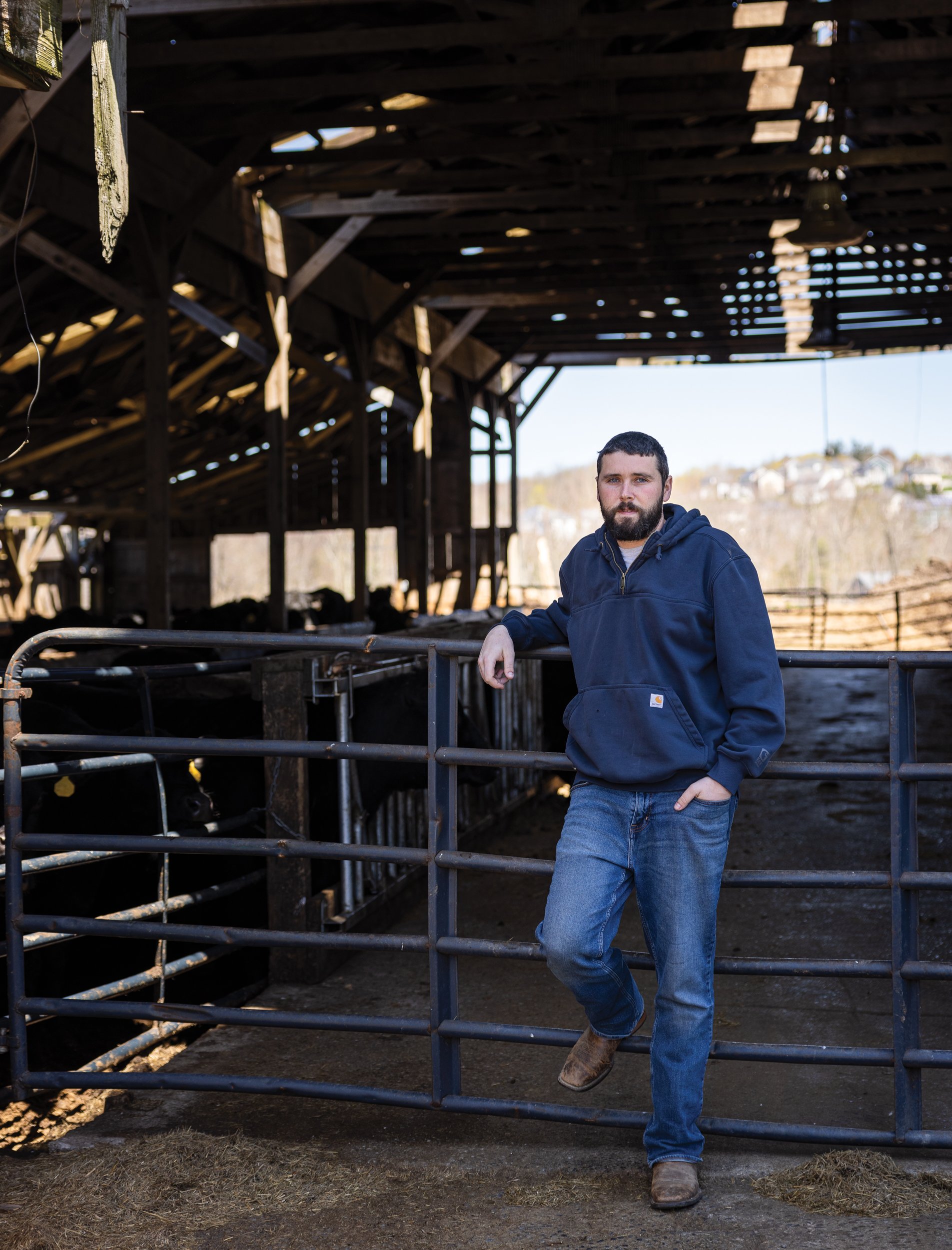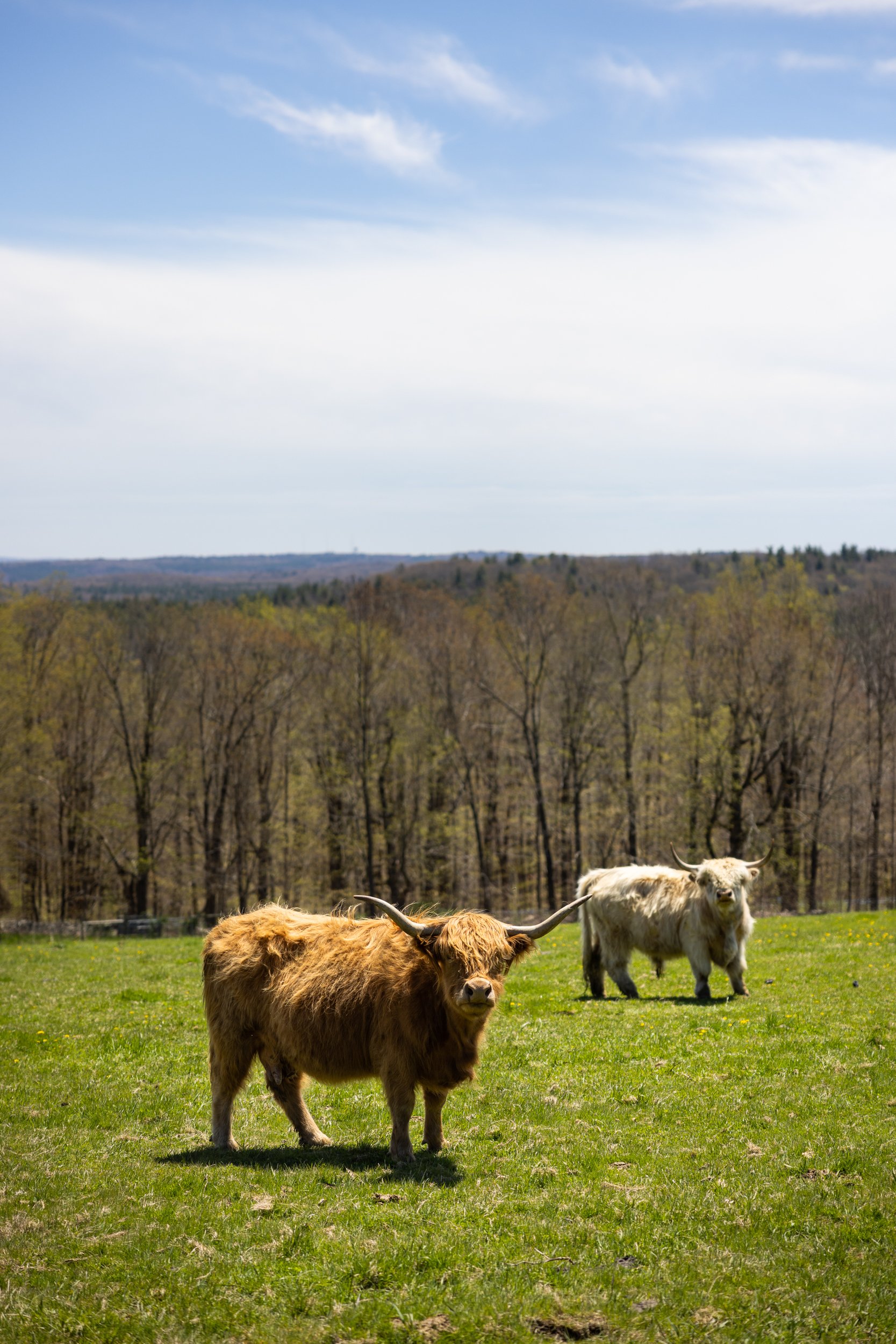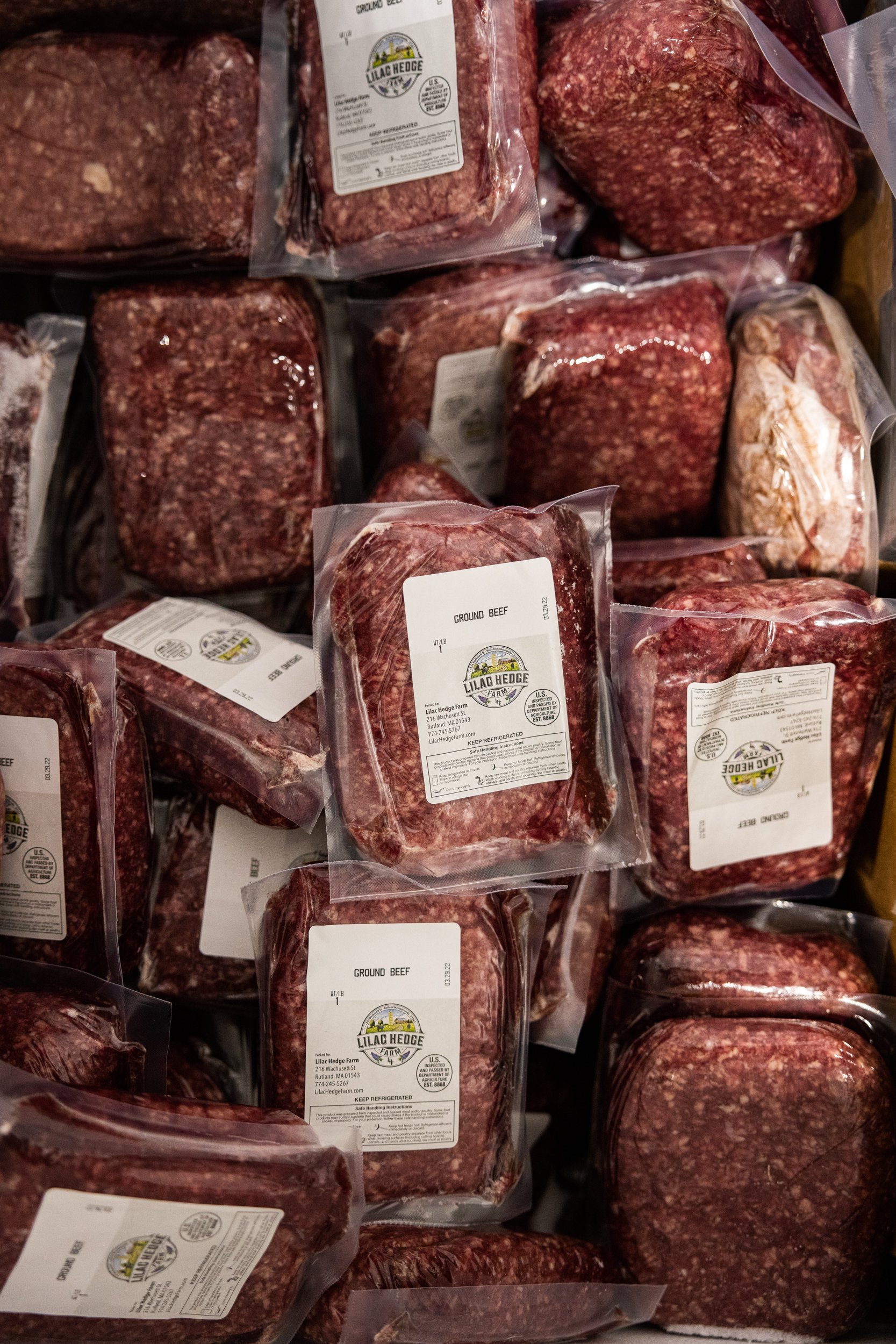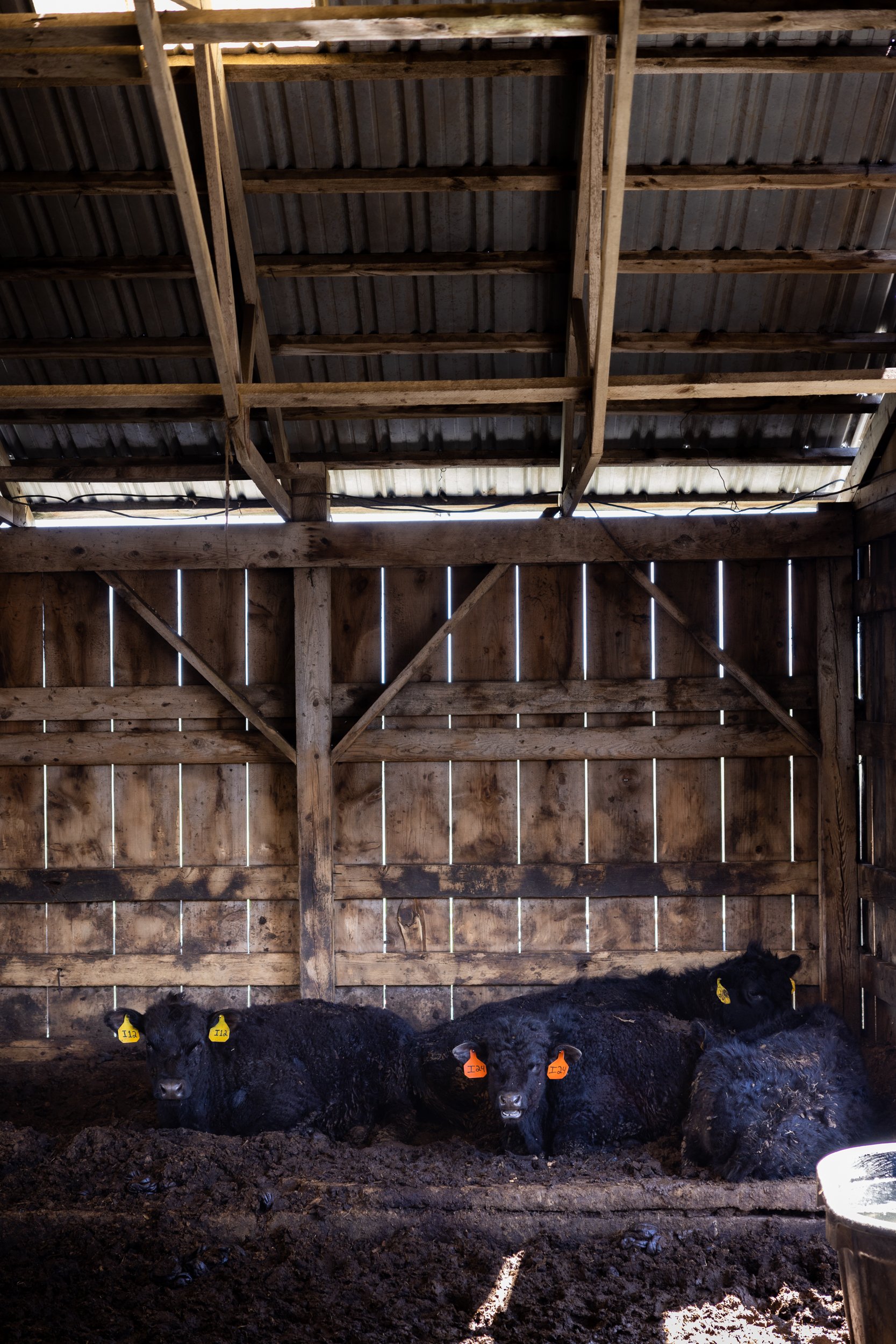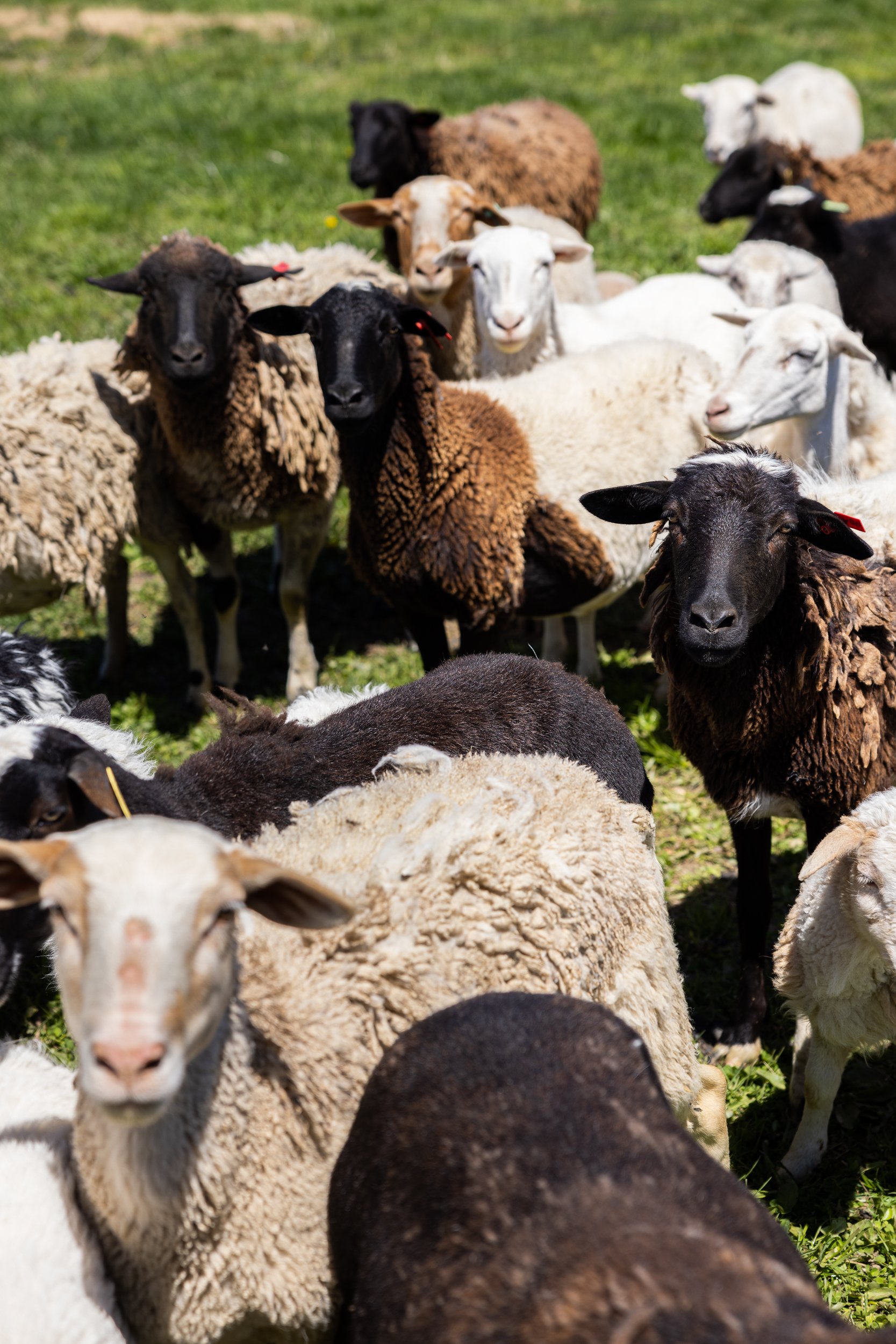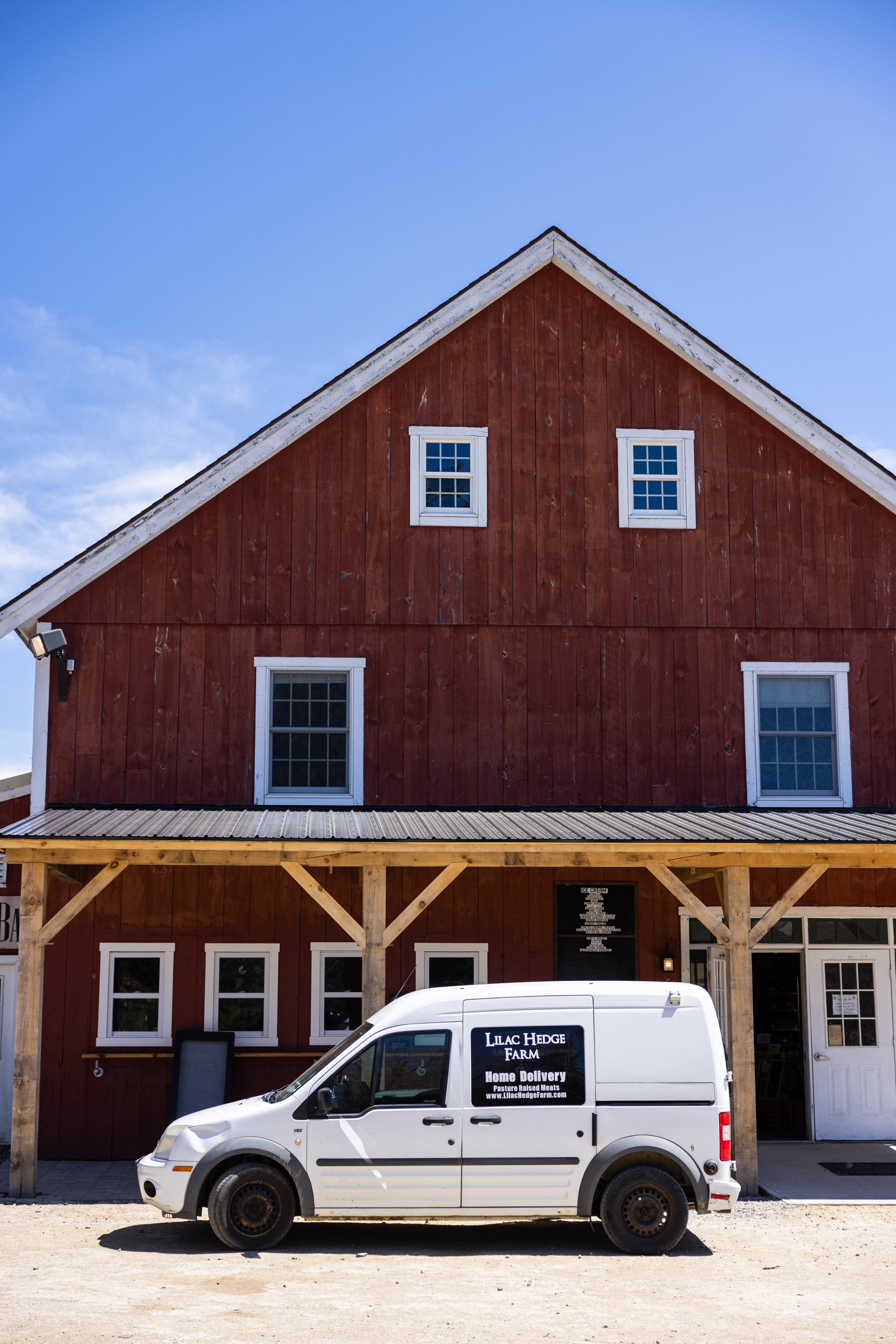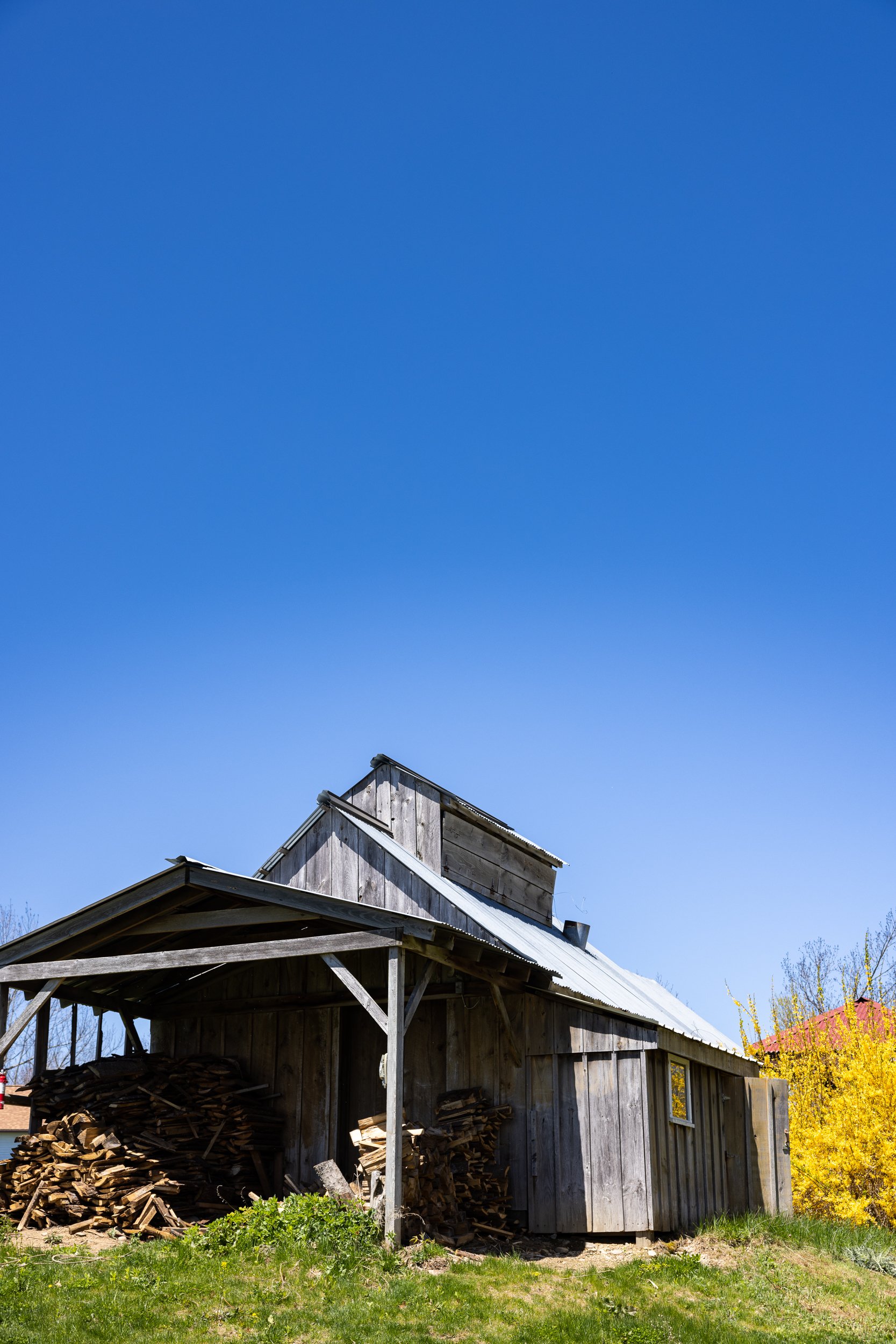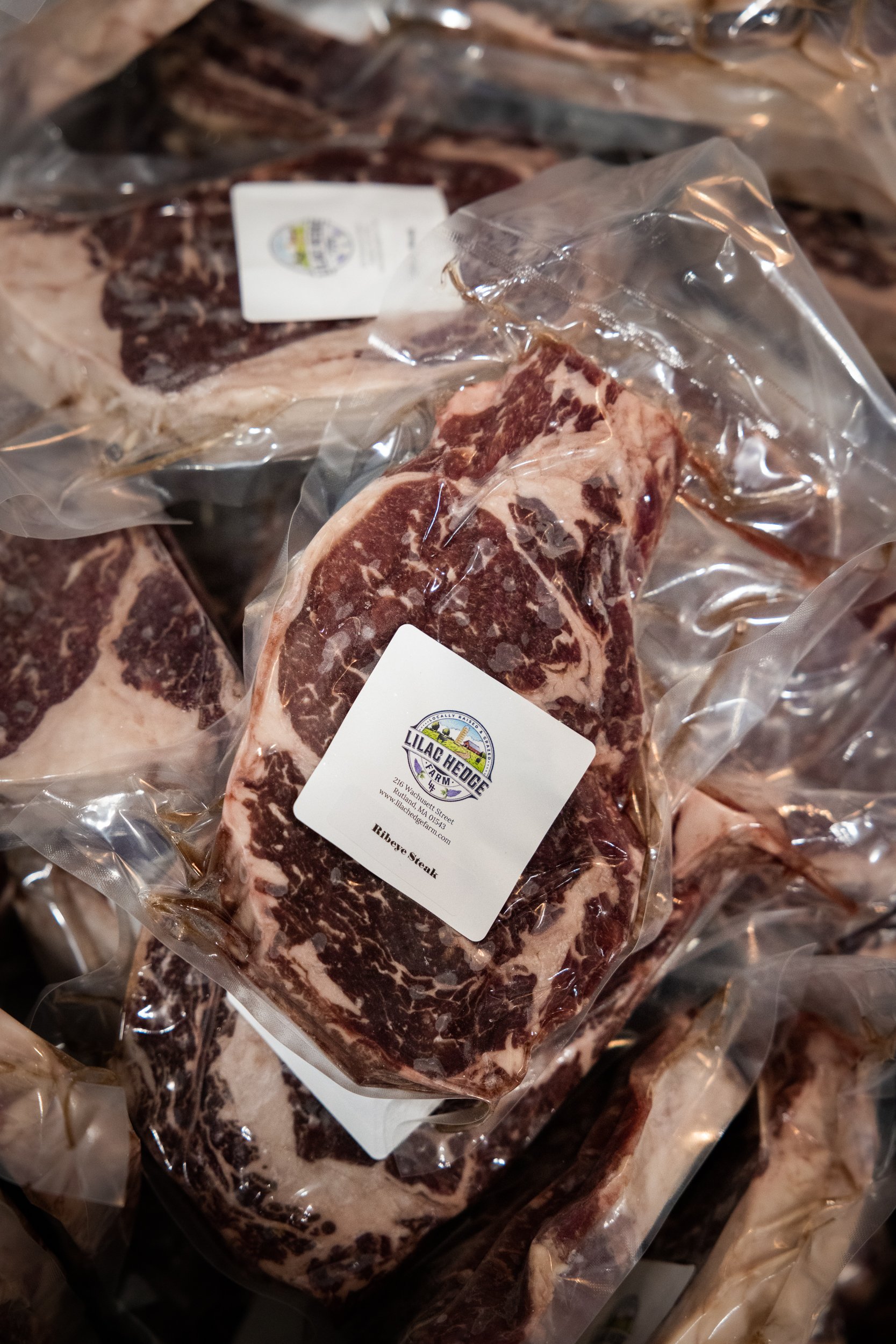Step By Step: Patience, Persistence Pay Off at Lilac Hedge Farm
Photos by Little Outdoor Giants
The story of Lilac Hedge Farm and its owner, Ryan MacKay, is one of grit, determination, ability to pivot on a moment’s notice and a mixture of good and bad luck. It’s also a lesson in the importance of relationships as well as respect for animals and the people who tend them.
Back in 2014, a story I wrote about Lilac Hedge Farm for Edible Boston asked, “What do you do when you’re a young farmer without a farm of your own?” I described the complicated and fragmented arrangements crafted by 24-year-old MacKay—rented land, borrowed storage space, numerous farmers markets—that enabled Lilac Hedge Farm to exist.
Eight years later, MacKay now owns more than 400 acres, primarily in the Central Massachusetts towns of Holden and Rutland. Lilac Hedge Farm has engaged customers throughout Central and Eastern MA, including the North Shore and Cape Cod, providing home delivery of meat, poultry, eggs, produce, dairy products—even seafood. Customers can also pick up their orders at the farm’s retail store.
That store has helped make Lilac Hedge Farm’s Rutland site a destination attraction with shelves filled with products from Massachusetts and New England. “It’s a showcase for all the cool things our friends on other farms are producing,” MacKay says.
There’s also a seasonal farm-to-table restaurant with locally produced food prepared on-site in the farm’s commercial kitchen. A bar serves locally crafted cocktails, brews, cider and wine. A playground and farm animals, including ostriches and MacKay’s pet camel, are attractions for the kids, as are the ice cream stand’s cones and sundaes scooped from ice cream made in the Pioneer Valley. For those who want to experience farm life up close, a fully furnished farmhouse will soon be available to rent.
Farm tourism was not even a consideration when MacKay purchased the farm’s initial 350 acres seven years ago. Uppermost in his mind at the time was convincing potential lenders that Lilac Hedge Farm was a solid business. He secured loans from Farm Credit East, a cooperative that’s part of a nationwide system, and the USDA Farm Services Agency. His cows, pigs, chickens and lambs that had been grazing on other farms throughout the county finally had a home of their own.
It was a fitting coincidence that the land MacKay bought is a former dairy farm in Holden. Lilac Hedge Farm was named for the dairy operated by four generations of his family in the same town.
Five years later, the farm’s website had just been updated to include online ordering when the COVID pandemic struck. In the ensuing shutdown, orders for meat from homebound customers skyrocketed. Within weeks Lilac Hedge Farm’s online orders went from 10–15 a week to 1,000. Since then online sales have leveled off to a more manageable level, consistently at a couple hundred a week.
“Thankfully, we were able to scale up quickly,” Mac-Kay says. In the spring and summer of 2020, the entire staff, including students who worked during the summer, became the delivery team. “For the next five months everyone was on the road seven days a week,” MacKay says. “We’d get back in the evening and pack the trucks until midnight. I’d drive out to the [Pioneer] Valley in my cousin’s dump truck and fill it with bins of apples and potatoes to add to our online produce. We added items from our farm friends, such as cheeses, maple syrup and coffee.”
The pandemic was not the first major challenge that the young farmer faced. In 2018 an electrical fire destroyed a barn on the Holden property. Friends and neighbors pitched in to rescue all the animals, and farmers in the area offered supplies to help Lilac Hedge Farm survive. Writing about the fire for his email newsletter, MacKay noted that, “Although the loss was extensive, the support I received over the following days and weeks was incredible.”
The experience caused him to reassess his vision for the farm as well as his life. “It made me realize how to move forward,” MacKay says. “I wanted to do more than put meat into boxes.”
That meant expanding the farm business and building a management team from friends, family and fellow farmers in the area. James Cooper, the farm’s manager and his wife, Heidi Cooper, general manager, both grew up in farming and have been friends with MacKay since they all were members of the MA Farm Bureau Young Farmers and Ranchers committee. MacKay hired Ashley Guerin as retail manager; she impressed him with her meat processing experience at Adams Farm in Athol. Erin Laforce, MacKay’s boss when he worked at Davis Farmland as a teenager, joined the team as one of MacKay’s managers. The latest addition is Culinary Director Josh Swerling, former executive chef at Volturno in Framingham. Swerling creates the farm’s restaurant menu and manages the commercial kitchen where frozen main courses such as potpies, pulled pork and soups are prepared for sale in the retail store
Ryan’s mom, Ann MacKay, handles the farm’s accounting, payroll and taxes in addition to running her own market research business. His aunt, Susan D’Amico—“Aunt Sue,” a retired teacher—oversees the farm’s retail activities, from assisting customers at the store and farmers markets to developing promotional materials and signage.
Together with an enthusiastic group of seasonal employees, they are as close-knit as many families. “We’re not just employees; we all feel like we’re part of the team,” says D’Amico.
In a recent newsletter post on the anniversary of the fire, MacKay expressed his understanding and appreciation of his employees’ contributions. “We have so many different jobs that are filled every day, and if I’m being honest a lot of it is repetitive, detailed, strenuous and difficult work,” he wrote. “From maintaining the vehicles and packing areas in ice storms during February, to organizing product when it comes back from the processor in the July heat and quickly working to organize it away in the storage freezers: What my team does is not for the faint of heart.”
The newsletter has built a strong relationship with Lilac Hedge Farm’s customers. “It’s a way to convey to our customers what’s going on at the farm and explain pricing changes, shortages or problems such as why we were having trouble getting our animals processed,” MacKay explains. A big reason, especially for farm-raised chicken: There is no USDA-certified processing facility for poultry in Massachusetts. To ensure his animals are processed in a timely fashion and treated humanely, MacKay uses USDA-certified slaughterhouses in NH, Maine, NJ and Pennsylvania. “I’d rather drive four hours to a place where we have a good working relationship,” he says.
Lilac Hedge Farm also partners with farms whose practices align with its own to supplement the meat it sells. A farm in Maine, for example, supplies ducks. “I’ve come to realize it’s best to focus on what we’re good at [raising beef cows, chickens and pigs,] and partner with other farms to supply the other farm products we sell,” he says.
One of the many relationships MacKay and his team have with other farmers was key to the farm’s latest expansion. MacKay had gotten to know the Williams family of Rutland when he grazed lambs on nearby acreage. The Williamses had donated most of their 400-acre farm to Heifer International, but the organization closed the Rutland farm in 2017. The family was able to buy back some, but not all, of the donated property; they introduced MacKay to representatives of Heifer International, who accepted his offer to buy 45 acres. The purchase enabled him to realize his long-held goal: retail sales on the farm.
MacKay’s vision continues to adapt to current events. The COVID pandemic may be winding down, but a new avian flu is sweeping poultry barns in the Midwest and has prompted the staff at Lilac Hedge Farm to take biosecurity precautions.
Developing the talents of his staff and management team, however, has allowed MacKay to occasionally step away from the daily routine. “I’m trying to focus on work-life balance,” he says. “Having a farm shouldn’t have to consume your life. You should be able to feel OK taking an afternoon off to do something else.” Ironically, for MacKay, one of those getaways is simply hopping on the mower for a few Zen-like hours of haying.

